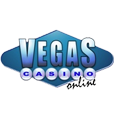Nevada Casinos, Gambling, and Law Regulations: An Overview
Las Vegas, Nevada has been synonymous with gambling since the birth of the state itself. Even before being admitted as the 36th state, Nevada’s salons and hotels were already bustling with gambling activities. In 1931, Nevada stepped forward as the first state in the United States to legalize casino gambling, cementing Las Vegas’ reputation as the nation’s entertainment capital – a moniker that Las Vegas, Nevada, continues to hold today.
Under Nevada’s gambling laws, there are pretty much no restrictions concerning what type of gambling is allowed, as they all are. In Nevada, you can gamble on all kinds of casino games, like slots, video poker, blackjack, roulette and craps in the world’s best casino resorts. You can also wager on pool and pari-mutuel betting all across Nevada, as it has been one of the few states exempt on all sports betting bans over the year, and is the only state where straight sports betting is allowed.
Thanks to its regulated gambling, Nevada has been the de-facto capital state of gambling with around 200k slot machines in Vegas alone and with approximately $11 billion in estimated gambling revenue.
In this article, we are going to deal with essential gambling laws and regulations in Nevada and provide you with an in-depth analysis of Nevada’s gaming industry, telling you what and where you can play when visiting the Silver State.
Top 3 Nevada Online Casinos
Gambling Laws in Nevada — The Law Overview
The following statement might seem to belong to the “believe it or not” section of the daily newspapers. Still, gambling was prohibited in Nevada between 1909 and 1931, succumbing to the pressure from the Temperance movement looking to ban all gambling and alcohol consumption. However, in 1931, Nevada State Assemblyman Phil Tobin introduced Assembly Bill 98 that allowed for wide-open gambling and establishment of first casinos. Taxes at the time were determined based on the number of games, and Nevada enacted a first licensing program where a per-game fee and fees on gross gaming win percentage were enacted.
Over the next 10 years, gambling flourished in Nevada, pretty much unrestrained. The 1949 changes to the law saw the rise of sports betting whose betting taxes went down from 10% to 0.25%, making it one of the most profitable forms of gambling in Nevada.
As the economy of Nevada grew more dependent on gambling, further provision had to be made to ensure its growth and fairness. In 1959, the Legislature passed the Nevada Gaming Control Act, which, with all its amendments that occurred over the year, is still in power and is a part of the Nevada Revised Statutes.
With this Gaming Control Act, the State Gaming Control Board under the Nevada Tax Commission was established to investigate, license, and enforce gaming laws, as well as ensure gaming taxes are regularly paid. Also, under the Gaming Control Act, the Nevada Gaming Commission was formed to act on the recommendations from the Gaming Control Board and with powers “to approve, restrict, limit, condition, deny, revoke or suspend any gaming license”, as quoted in the Statute.
Gambling in Nevada is thus governed on a two-tier control system, primarily described in Chapters 462, 463, 463B, 464, 465, and 466 of the Nevada Revised Statutes.
Licensed gambling is unrestricted, and licensed establishments of all kinds can offer a full slate of casino games according to five types of licenses issued: non-restricted gaming license, slot route operator’s license, manufacturer’s and/or distributor’s license, restricted gaming license, and interactive gaming licenses.
The non-restricted licenses are issued for business with 16 or more slots, while the restricted licenses are reserved for business with 15 or less and without any table games. However, the coveted license is the interactive gaming license that, apart from mobile gaming, can offer all kinds of games without any restrictions.
This type of license is reserved for the top casino resorts, as it sets different conditions for obtaining the permit in the first place, such as the existence of a large casino floor, accommodation arrangements, dining options, and more.
The gaming taxes in Nevada differ according to the gross revenues of the gambling establishment. For example, there is a 6.75% tax on total gaming revenues exceeding $134,000, plus further annual and quarterly fees on slot devices that range between $20 and $250 per slot device.
Nevada Revised Statutes
Remember that gambling in the Nevada Revised Statutes is defined as “Gaming” or “gambling” means to deal, operate, carry on, conduct, maintain or expose for play any game as defined in NRS 463.0152, or to operate an inter-casino linked system”.
Furthermore, “game” or “gambling game” means any game played with cards, dice, equipment or any mechanical, electromechanical or electronic device or machine for money, property, checks, credit or any representative of value, including, without limiting the generality of the foregoing, faro, monte, roulette, keno, bingo, fan-tan, twenty-one, blackjack, seven-and-a-half, big injun, klondike, craps, poker, chuck-a-luck, Chinese chuck-a-luck (dai shu), wheel of fortune, chemin de fer, baccarat, pai gow, beat the banker, panguingui, slot machine”.
Indulging in any other games not listed here is considered illegal gambling that can be classified as either a misdemeanor or even a felony, depending on the severity of the action, the result of which might include a prison sentence and a huge fine.
To gamble in casinos in Vegas, you need to be over 21.
What Forms of Gambling Are Allowed in Nevada?
Nevada is home to over 320 commercial casinos centered mostly around Las Vegas but also present in Carson City, Laughlin, and the Reno-Tahoe area that are considered the gambling hubs of the state. Over 40 million tourists that visit Vegas and the Strip have a full array of licensed casino gambling games to enjoy, from blackjack, craps, roulette, to baccarat, keno, live poker, and many other forms. There are more than 500 poker tables in Vegas alone, and many table casino games tournaments are regularly hosted in Vegas’s casinos.
Pool and pari-mutuel betting on sports and horse races is also allowed and has been legal in Nevada for decades. Nevada is one of the four states that had been exempt from the effects of the 1992 Professional and Amateur Sports Protection Act that banned wagering on sports. Furthermore, unlike other states that only offer daily fantasy contests and parlays, the state of Nevada provides full-service sportsbooks.
Under the Nevada Revised Statutes, particularly codes 462.061 and 462.064, charitable gaming is allowed to any registered charity, alumni, charitable, civic, educational, fraternal, patriotic, or veteran organization. These organizations can only offer bingo, poker, or blackjack game.
Also, social gaming is allowed, as it is not seen as gambling at all. Section 461.0152 of the Nevada Revised Statutes says that “[Gambling] does not include games played with cards in private homes or residences in which no person makes money for operating the game.”
Is Online Gambling Allowed in Nevada?
The current situation with online gambling in Nevada tells us that not not “all” forms of gambling are welcome in Nevada. Namely, the current state of things says that only online poker is allowed. Under Nevada’s AB 114 law, only two casinos are licensed to offer real money online poker to residents of Nevada, World Series of Poker, owned by Caesars, and Real Gaming, owned by South Point Poker LLC.
Many big casino companies fear that online gambling is going to destroy land-based gambling and are lobbying against it. So far, they have been successful, so it remains to be seen if the situation is going to change any time soon.
As far as playing at offshore casinos is concerned, there aren’t many of them that offer their services to Nevada residents due to the legal casino market available. However, there are no particular laws that ban players from accessing offshore casinos. The law is focused more on running online casino operations which are punishable by law. Cases have been seen where such organizations or individuals were arrested and convicted.
Once again, this does not refer to you playing at an offshore casino. You probably won’t get charged with a felony for it.
Where to Gamble in Nevada?
With over 300 commercial casinos in Nevada, numerous slot parlor shops, and pretty much any gas station and convenience store that can be registered to have slot machines, the gambling options in Nevada are endless. We have come with a shortlist of a couple of world-famous casino resorts where the ultimate gambling experience is guaranteed.
MGM Grand
The MGM Grand is one of the most famous casino resorts in the world. It is located on 3799 S Las Vegas Blvd, Las Vegas, Nevada. The casino features a vast choice of slots, with over 1,700 of them available to players on a 111,955 square-foot gaming floor reserved for slots only. At MGM Grand, you can also find dozens of live poker and table games with live tournaments hosted daily. Apart from gaming, a state-of-the-art hotel with over 400 exceptional rooms and entertainment venues will make your stay at MGM Grand an unforgettable one.
The Bellagio
The Bellagio Hotel and Casino is famous not only for being in the Ocean’s Eleven thriller movie but also for its exceptional gaming offer and hotel amenities. With over 40 live poker tables and over 2,300 slots and video poker games with huge jackpots, there won’t be a dull moment at the Bellagio. The Bellagio also offers dozens of exclusive restaurants with diverse cuisines and price ranges, as well as ultimate housing accommodations at one of their suites and hotel rooms. You can find the Bellagio down the Strip, on 3600 Las Vegas Blvd S, Las Vegas, NV 89109. It is open 24/7 all year long.
FAQ
Are casinos legal in Nevada?
Casinos are legal in Nevada, and there are hundreds of them across the state.
Is online gambling legal in Nevada?
The only form of legal online gambling is live poker. However, playing at offshore casinos is not explicitly illegal.
What games can you gamble on in Nevada?
In Nevada, you can gamble on casino games, horse racing, social gambling, legal sports betting, charitable gambling, online live poker, and many other forms.
What is the legal gambling age for players in Nevada?
The legal gambling age in Nevada is 21.
Who regulates legal forms of gambling in Nevada?
The legal forms of gambling in Nevada are regulated by the Nevada Gaming Commission and the Nevada Gaming Control Board.








